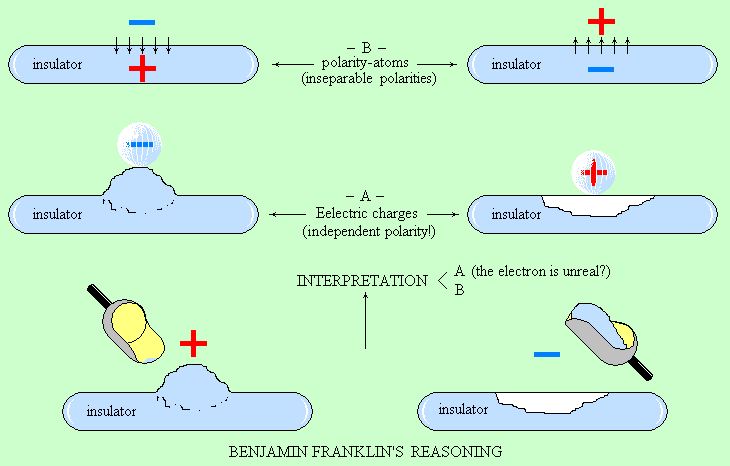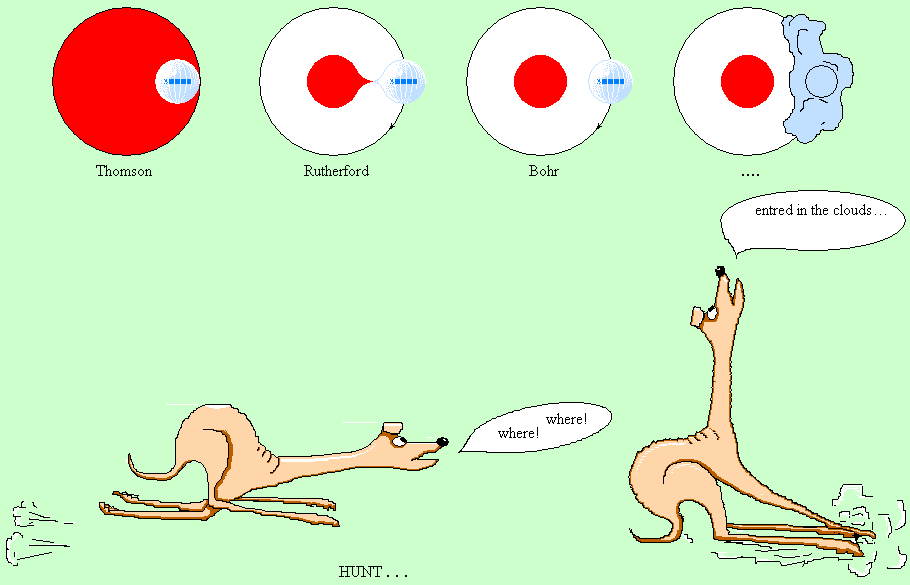

Electricity was that "something" plus or minus on the electrified
body. What was that "something"?
At that time, physicists affirmed that electricity can be conceived as being
formed of individual units - electricity atoms.
This was the main answer - A.
There also existed alternative B, from the
electric and magnetic field, with lines of attraction or repulsion forces,
induction, waves, ether - Faraday, Maxwell and Hertz.
However, in 1894, Johnstone Stoney coins the term electron.
Then JJ Thomson in 1897, deduced that the cathodic
rays were rather negatively charged particles than waves, which he
named "corpuscles" (electrons).
Subjectively or objectively, the electron is accepted. Electron = "electricity
atom".
And it triumphs in the planetary atomic model. A micro-cosmos!
The "atom's catastrophe" followed. So, the electron's catastrophe!
Negative polarity isolated in the electron, the independence
in movement and action, are the true
catastrophe! In other words, the electron is unreal!
What effects does the inexistence of the electron have, what does
it change? It does not change anything.
Electricity remains electricity (matter field). The "electronic"
current has been and is electric current. The quality of phenomena does
not change as we interpret it.
The impact is on the theoretical plane, where the objective perception of
a phenomenon by different persons leads to different subjective interpretations.
The purpose of interpretation is knowledge. The correct interpretation opens
the door for knowledge. The wrong interpretation closes the door to knowledge.
Virtually, electronics is the progress of electricity. Transistors, integrated
circuits, microscopes, computers, etc. All are electric devices and apparatuses.
This development began, however, from the making of components by means
of practical efforts, experiment, exploration, even by reconsidering the
refuse, pursuing only the concrete effect of electricity.
The accomplishments consolidated, however, the illusion that the electron
is the electricity atom and the idea that magnetism must also have its
own particle (magneton) and that gravity must have its own particle
(graviton) and that even mass must have its own particle (the Higgs
boson).
I hope the example of the "mutilation" of the polarity of electricity
is enough - the one hundred years stagnation.